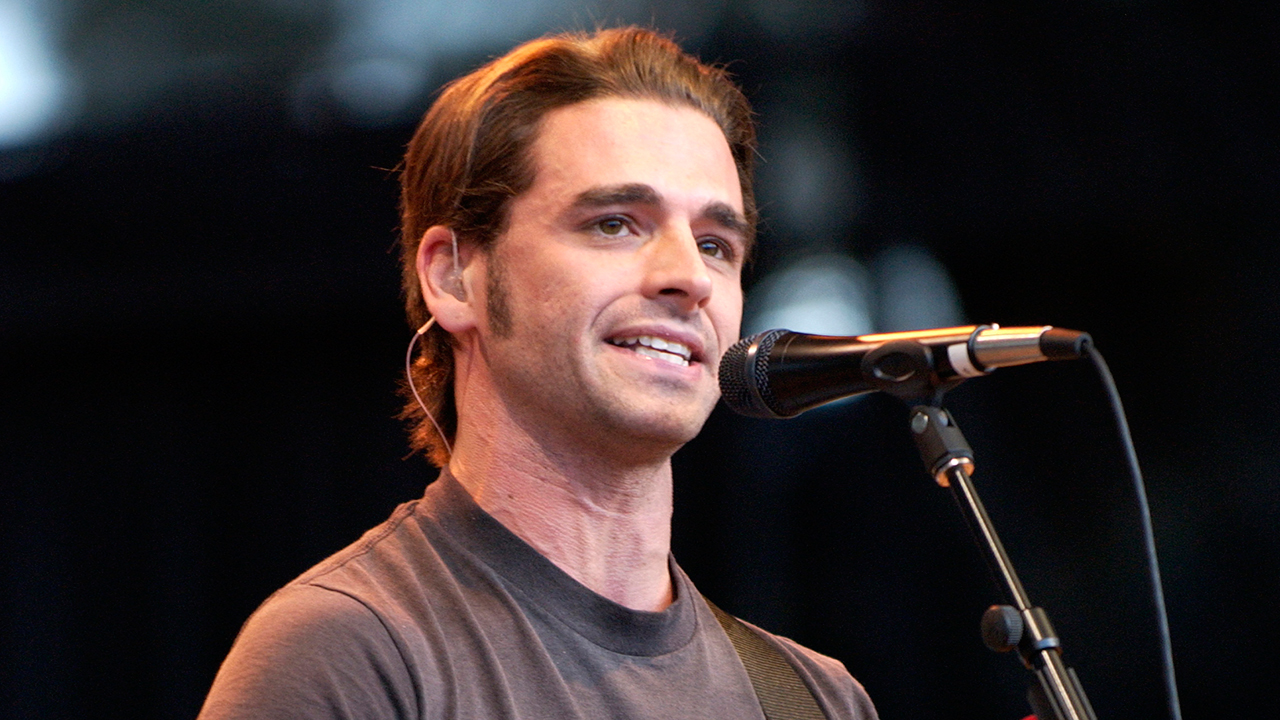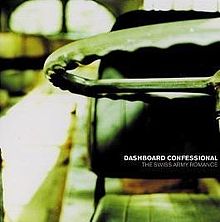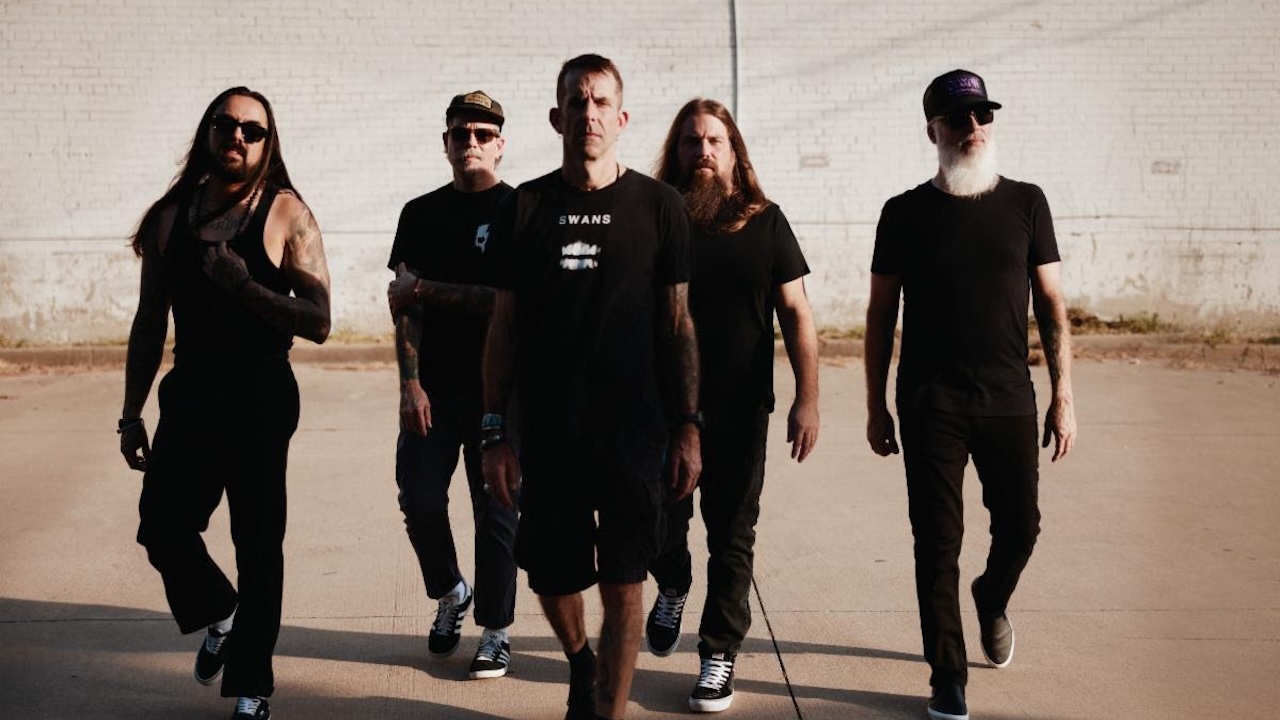The Swiss Army Romance: How Dashboard Confessional sparked an emo uprising

Select the newsletters you’d like to receive. Then, add your email to sign up.
You are now subscribed
Your newsletter sign-up was successful
Want to add more newsletters?

Every Friday
Louder
Louder’s weekly newsletter is jam-packed with the team’s personal highlights from the last seven days, including features, breaking news, reviews and tons of juicy exclusives from the world of alternative music.

Every Friday
Classic Rock
The Classic Rock newsletter is an essential read for the discerning rock fan. Every week we bring you the news, reviews and the very best features and interviews from our extensive archive. Written by rock fans for rock fans.

Every Friday
Metal Hammer
For the last four decades Metal Hammer has been the world’s greatest metal magazine. Created by metalheads for metalheads, ‘Hammer takes you behind the scenes, closer to the action, and nearer to the bands that you love the most.

Every Friday
Prog
The Prog newsletter brings you the very best of Prog Magazine and our website, every Friday. We'll deliver you the very latest news from the Prog universe, informative features and archive material from Prog’s impressive vault.

Released: March 1, 2000
Length: 33:12
Label: Fiddler
Producer: Chris Carrabba, James Paul Wisner
Tracklist:
1. Screaming Infidelities
2. The Sharp Hint Of New Tears
3. Living In Your Letters
4. The Swiss Army Romance
5. Turpentine Chaser
6. A Plain Morning
7. Age Six Racer
8. Again I Go Unnoticed
9. Ender Will Save Us All
10. Shirts And Gloves
Imagining what the emo uprising of the early 2000s would have been like without Chris Carrabba and his band Dashboard Confessional is impossible. Yet, when you go back and listen to other bands from that era that were gathered up in the same movement – Saves The Day, Taking Back Sunday, New Found Glory et al – Dashboard are a band without direct comparison. Their debut album The Swiss Army Romance – and its successor The Places You Have Come To Fear The Most – swam both with and against the current with equal intensity.
For a guy whose daily diet once reportedly consisted of a peanut butter and jelly sandwich for both lunch and dinner, Carrabba’s music has changed more from record to record than someone who wasn’t otherwise familiar with his work might suspect. It's more the general perception of Dashboard Confessional that has remained the same. In 2002, the headline of a Rolling Stone interview declared Carrabba to be the “King of Pain.” Sixteen years later, in an article heralding Dashboard Confessional’s return, the New York Times referred to him as – yes – the “King of Pain.” Somewhere, Sting must have been stewing.
Listening to The Swiss Army Romance twenty years after its initial, very limited release, the album doesn’t come across as unduly heavy as Dashboard’s reputation became. Its mood is definitely lighter than that of The Places You Have Come To Fear The Most, the record by which Carrabba’s broadest audience was introduced to him. There is no bloodletting on the level of This Bitter Pill, which concludes Places with a draining scream. The Swiss Army Romance did offer earnestness in spades though, which is where the rooms full of teenagers hanging on every word came in.
"Chris was a camp counsellor for years," Carrabba’s mother told Rolling Stone in that 2002 interview. "So when he's onstage, it's like he's doing a really big singalong." There really is no better analogy for the role Chris Carrabba played when he first stepped out on his own into the indie rock realm. Transplant the scene back then at your average Dashboard Confessional gig from being huddled around the stage at a sticky floored club to sitting on the forest floor around a campfire, and the instinctual familiarity and appeal is obvious. Living In Your Letters isn’t exactly Kumbaya, but the encouragement to communicate and empathise is built into the sharing of both.
For those who weren’t around, were too young, or were just simply unaware at the time of the Dashboard phenomenon, reading past accounts about the rapturous audiences that surrounded Carrabba practically from the beginning must bring at least a little disbelief. Be assured that it really did happen like that. This writer still vividly remembers a conversation with an acquaintance named Jared not long before The Swiss Army Romance was given a wider release by Drive-Thru Records in November of 2000. Jared’s eyes widened as he explained the Dashboard Confessional experience and fielded bemused questions: “Everyone sings along? How do they already know all the words if the record isn’t out?”
The story of Dashboard Confessional’s early success is inextricably linked to the story of the nascent Internet’s first major impact on the music world. Napster was in the ascendant at the same moment that Carrabba decided to share with those around him a batch of acoustic songs that didn’t mesh with the other punk and hardcore bands he played in. His first solo performances around South Florida, where he had moved with family as a teenager, were a typically modest start in front of friends and local skater kids. If it had happened only a couple of years before, the somewhat hesitant Carrabba might have had a slow and organic growth track ahead of him, but the exponential possibilities of file sharing blew up any such gestation period.
Released by Carrabba’s friend Amy Fleisher Madden on her upstart Fiddler Records that March, The Swiss Army Romance’s first pressing was only one thousand copies, but the Internet dubbed it faster than a fleet of teenage tape decks ever could. “Dashboard Confessional was then…” observed author Andy Greenwald in his 2003 book Nothing Feels Good: Punk Rock, Teenagers, and Emo, “the best possible kind of secret, one you want to share with everyone you know and care about. Links to MP3s of Swiss Army songs began popping up on the messageboards of like-minded bands...the Napster file-trading service was at its peak, allowing Carrabba’s songs to crisscross the country like good-luck chain letters, spreading his legend and lyrics to places he’d never even visited, let alone performed in.”
The latest news, features and interviews direct to your inbox, from the global home of alternative music.
This was the point when Carrabba would start rolling into venues packed with new fresh faces singing all of his words back at him. This was desired and encouraged by Carrabba, who at every performance would ask his audiences not if they were ready to hear him sing a song, but if they were ready to sing one with him. Having come out of a punk scene, this piercing of the veil between audience and performer was the most punk rock thing about Dashboard Confessional. It was also an equality that most punk rock, with all of its amplification and noise, could rarely achieve: everyone was in the band, participating and not just observing.
Spreading right along with online testimonials about the power of Dashboard’s music were stories of that concert experience, which became a sort of self-aware, self-fulfilling prophecy. The picture Jared painted in our conversation in the fall of 2000 was identical to the one Greenwald carried over in his book a few years later. It was an honest, emotional interaction, but after a while it couldn’t be spontaneous in the way that it would be if it happened at other shows where the ritual wasn’t pre-established. Singing along wasn’t mandatory, but at some point you might feel a little out of the loop if you didn’t.
It also didn’t necessarily suit everyone. Jared and I were only a year or so apart in age, and had bonded over a mutual love of emocore when he saw me wearing a Mineral T-shirt. I could easily hear that Dashboard Confessional were quantifiably “emo,” but something in its nature felt different from the impassioned post-hardcore of the 1990s, beyond the obvious unplugged delivery of the songs. Perhaps it was the unflinching directness at a time when at least a little abstraction was still the indie norm. Dashboard Confessional were one of the first notable figures of third-generation emo not simply because of their timing, but also because of who they spoke to.
Carrabba also stood out for how he spoke to his listeners. In an interview with Tom Mullen for the Washed Up Emo podcast at the end of 2014, Carrabba cited Bob Dylan’s Blood On The Tracks as being one of the first albums to inspire him to play guitar (he also named Simon and Garfunkel’s Bookends). Blood On The Tracks has to qualify as Dylan’s most emo album, but Carrabba’s songwriting on The Swiss Army Romance had as much to do with Dylan’s mid-‘60s work, when his songs felt foremost guided by the words. Countless musicians bow to Dylan, but they don’t often emulate the verbosity of his prime.
It is common for songwriters to shape their lyrics to fit a melody, but it’s hard to imagine Dashboard songs like Again I Go Unnoticed and The Swiss Army Romance's title track being born that way. The lyrics take the lead and the chords follow. The version of Screaming Infidelities which opens The Swiss Army Romance is just Carrabba’s voice and guitar alone, and it makes sense in its own rhythm. Rerecorded for Places with additional instrumentation, the song’s idiosyncratic timing is brought to light as the drums mostly have to chase and counterpunch, and don’t lock in step with the guitar until the final segment.
The Places You Have Come To Fear The Most, down to its longer title, is even more voluble than The Swiss Army Romance, and Carrabba still had plenty left over to say on The Moon Is Down, the 2001 debut album from Florida band Further Seems Forever, which he fronted until Dashboard took off, and has occasionally returned to since. There are times on Swiss Army when it sounds as if Carrabba hears a full band in his head, most notably Ender Will Save Us All with its pop-punk downstrokes and stop-starts, but also other tracks like The Sharp Hint Of New Tears. It’s kind of a shame that Ender Will Save Us All wasn’t brought back with Screaming Infidelities and Again I Go Unnoticed for that treatment on Places, or on the more musically aggressive follow-up in 2003, A Mark, A Mission, A Brand, A Scar.
This is somewhat beside the point, since listening to Dashboard Confessional wasn’t foremost about getting hooks stuck in your head as it was about getting things out. It was group therapy at gigs and one-on-one sessions in suburban bedrooms across the country. Carrabba’s intense interpersonal dissections and purges confirmed the suspicions of many thousands of teenagers that their thoughts and feelings were the most important thing in the world. Dashboard’s appeal had facets that were both generation-specific and universal. The Swiss Army Romance forged the kind of artist-audience bond that isn’t easy to duplicate or deteriorate.
Dashboard Confessional head out on an intimate 20th anniversary celebration tour in April. Head to their official site for full dates and more information.
Ian is the author of Appetite for Definition: An A-Z Guide to Rock Genres (Harper Perennial, 2018), and his writing can also be found at Stereogum, Under the Radar, KEXP.org and other places.

